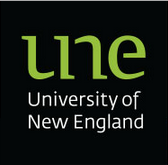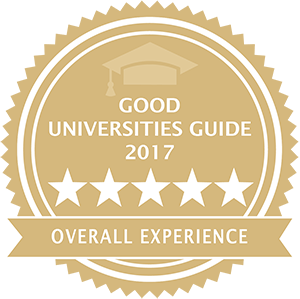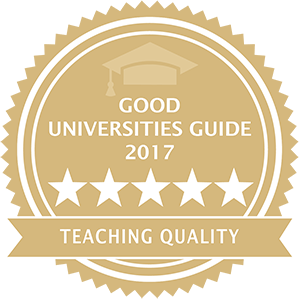
Study Animal Science and Zoology

We’re the only online University to be awarded the maximum 5 stars for Student Satisfaction, every year for the last 10 years*
*The Good Universities Guide Ratings 2007-2017
Courses
Featured Courses
If you are interested in a career working with animals, the Bachelor of Animal Science and Bachelor of Zoology offer graduates two distinct pathways.
The Bachelor of Animal Science deals with man’s often complex relationship with animals and how we manage them. The course offers three specialist majors, in livestock production, wildlife management, and canine and equestrian science.
The Bachelor of Zoology is the only one of its kind in Australia. It gives you an exciting and wide-ranging experience in the science of studying and understanding both terrestrial and aquatic animals. The course focuses on a broad range of issues, including the internal functioning of animals (physiology) and their role in their environment (ecology).
You can also study Zoology as a major in the Bachelor of Science. It is also possible to study a Bachelor of Science with a major in Animal Science and Veterinary Studies. This degree can be used as a stepping stone to a veterinary degree or a career in a range of animal industries.
In the a href="https://my.une.edu.au/courses/2017/courses/GCSC?elqTrackId=b8a7abaaebae4031bf8cc1cfcfb94875">Graduate Certificate in Science, the Zoology major enables students to study topics such as wildlife ecology and management, biological systems, evolutionary biogeography, insect-plant interactions, animal behaviour and entomology.
The Zoology major in the Graduate Diploma in Science provides the opportunity to study topics such as animal behaviour, ecological and comparative zoology, invertebrate zoology, entomology, insect-plant interactions and evolutionary parasitology together topics such as wild dog ecology, conservation biology and remote sensing and image analysis. Students are also able to complete a small thesis.
Students completing the Zoology major in the Master of Scientific Studies are able to include advanced study in topics also available in the Graduate Certificate and Graduate Diploma in addition to introduction to GIS and spatial thinking, animal biosecurity, applied animal nutrition, advanced statistical modelling, genetics of populations, working canines and medical and clinical biotechnology. Students also complete a thesis reporting the results of a research project or two mini-research projects.
Other Available Courses in Animal Science and Zoology
UNE offers a range of undergraduate and postgraduate courses in animal science and zoology. Most are available to be studied online and can be started in one of our three entry periods: February, June, and October.
The following table shows the courses that are available in our currently open entry periods.
| Course | Trimester 2 - Start June | Trimester 3 - Start October |
|---|---|---|
| Bachelor of Animal Science | ✔ | ✔ |
| Bachelor of Science (Animal Science and Veterinary Studies, Zoology) | ✔ | ✔ |
| Bachelor of Science/Bachelor of Laws | ✔ | ✔ |
| Bachelor of Zoology | ✔ | ✔ |
| Graduate Certificate in Science (Zoology) | ✔ | ✖ |
| Graduate Diploma in Science (Zoology) | ✔ | ✖ |
| Master of Scientific Studies (Zoology) | ✔ | ✖ |
Please see course details for individual course rules and admissions criteria. Note some degrees have mandatory intensive schools which require attendance on campus.
Studying Online
Flexibility is the key to our online learning programs. Whatever your commitments you can study at any time or place around the world - at home, travelling or at work. Your study can be balanced with the competing interests of work, family and social commitments.
UNE has been providing flexible education for over 60 years, so we know what the challenges are, and have a wide range of support services in place to help students overcome them. Our online teaching is designed to be inclusive, and to create a learning community for all students to engage with each other as well as academic staff. This is one of the reasons why we’ve been rated the best online university by Online Study Australia in its national list of top ten online universities.
How does online study work?
Instead of turning up to a lecture on campus at a designated time, the course content is provided online for you to access when it suits you each week. It might be a podcast (recorded lecture), a set of readings, questions posed in a discussion board, an online quiz or a video. Your lecturer will guide you through the unit with a weekly plan of study.
To make sure your learning can take place when it suits you, UNE provides online facilities which allow you to send questions, submit assignments, order library books, check your grades and access other resources, 24 hours a day, seven days a week.
We also believe that a vital part of online study is your engagement with the learning community. Communication with your classmates, teaching staff and university support staff will enhance your study experience and ensure that your skills extend beyond just the subject matter.
Intensive Schools
Some online units have intensive schools, which are usually held in the term breaks at our Armidale campus. Intensive schools are a valuable and enjoyable experience that enrich the learning process and help build your networks. Check the Course and Unit Catalogue to see if any units in your degree have intensive schools.
Please note: International students who wish to study wholly online are only permitted to do so if they are studying online from overseas or are studying in Australia on a visa other than a student visa.
Pathways Enabling Course
Pathways Enabling Course
The Pathways Enabling Course prepares you for admission to an undergraduate course at UNE. It is free from course fees and available online. The course awards you with the minimum entry requirements and can provide credit towards your UNE degree.
Why study the Pathways Enabling Course?
- Prepare for university without paying course fees
- Gain admission to university
- Flexible online study
- Develop valuable skills and knowledge
- Complete study that can count towards your degree
- Start in any three teaching periods
More information about the Pathways Enabling Course.
You may also be interested in TRACKS Tertiary Preparation Program for Aboriginal and Torres Strait Islander people.
Science Pathways
The Science Pathways program in the Bachelor of Scientific Studies is designed for students who may have little or no scientific background. It aims to build the skills and knowledge to help prepare students for more specialised science-based degrees. It includes foundation units in basic sciences and allows you to choose units from a range of specific study pathways. On completion of the program you can transfer into the science degree of your choice, and receive credit for units already completed.
More information about the Science Pathways Program.
How To Apply
Getting Started
Prior to applying we suggest you:
- Check out our Course and Unit Catalogue, to see all the degrees UNE has to offer. You can search by course or for specific subjects. If you find yourself thinking 'that might be good', then have a look at which degree program is linked to those subjects.
- Check if you need to add any entry requirement documentation to your application.
- Check the closing dates for applications. Some courses have earlier closing dates and requirements.
- You may also be eligible for credit for study you've previously undertaken successfully, find out about Advanced Standing.
Ready to apply?
Applications are now open for Trimester 2, 2017
Please note: International students who wish to study wholly online are only permitted to do so if they are studying online from overseas or are studying in Australia on a visa other than a student visa.
Need some more information?
Use the form below to email our Future Student Team and they'll be able to help you with details about the application process, degree questions, studying at UNE and more.
University of New England CRICOS Provider Number: 00003G | © University of New England, 2017

